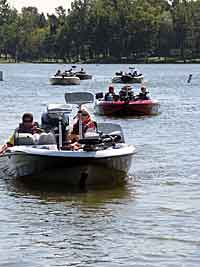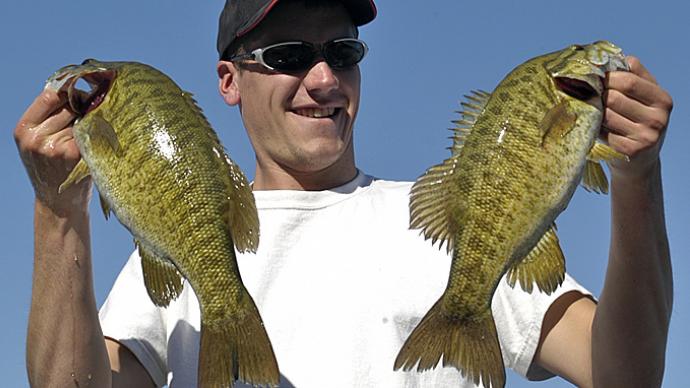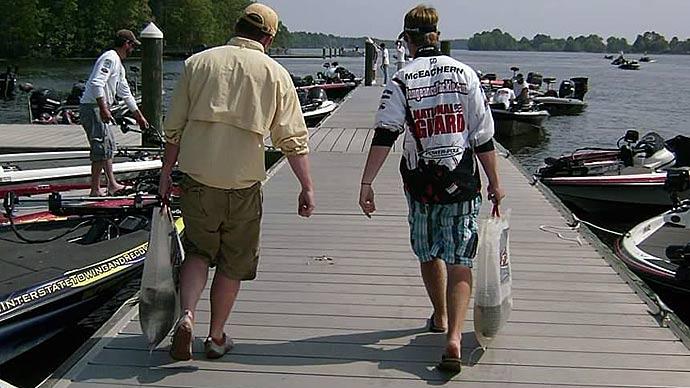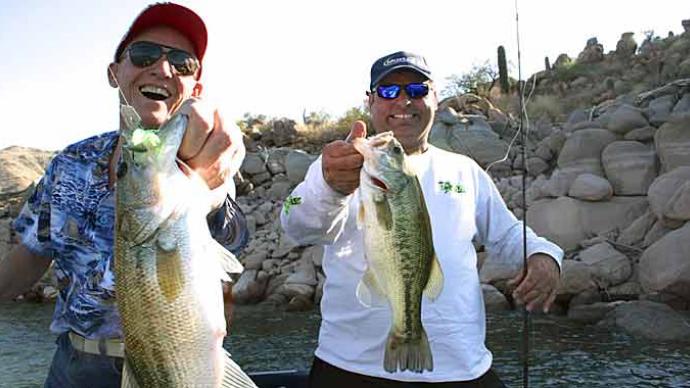
To some, a boating or fishing partner means a non-boater neighbor, an associate at work, or a friend from high school or college. To others, it is their spouse or significant other, but if you look at it from the non-boaters side, you have the boat and assume the lead in the adventure.
There are many things we take for granted when we ask a friend to go fishing, or a friend asks us to go along on a trip to the lake. To give you some guidelines for fishing etiquette and boating rules, let's start with the boater, or boat owner, first.
As the boat owner, you are the one who usually pulls the boat with your vehicle or drives the boat when on the lake, runs the trolling motor, and fishes from the front of the boat. Are you ready for that trip to the lake? Before going on a fishing trip, you should check battery fluid levels and give them a full charge, check your gas and oil levels, and the lights, gauges, livewells, and bilge pumps. Is the drain plug in the boat? Is your motor ready to go? Do you think it will fire off? Do you need a tune-up?
Don't be one of those anglers at the ramp with your boat either in the water, on the trailer, or sitting in the way on the ramp with you and your partner trying to start the motor. It's embarrassing to you and your fishing partner and can ruin a trip to the lake because you were unprepared. You need to maintain your rig properly year-round. You can get a motor flusher that fits the motor's water intake. This allows you to hook up a water hose and start your motor to see how it is running - before you go to the lake.
Arrange your rods and reels, lures, tackle, and other gear so that there is room for your partner to have a place for their tackle and gear. You also need to ensure you have a life jacket for your partner. Pack the ice chest with water, Gatorade, or cold drinks and some snacks for lunch for you and your partner, and let your fishing partner know what you are bringing.
Before you get to the water, you need to plan how you will launch and what part your partner will take to make this easy on you, your partner, and the other anglers waiting in line. Ensure you give your partner instructions on boat operation and how to work the trolling motor. You never know when you might fall overboard; your life may depend on whether or not your partner can get the boat back to you. Plus, it's nice if they can take over the trolling motor once in a while when you need to re-tie a lure or take a break from the wind.
Being a good fishing partner as a non-boater doesn't include as many significant responsibilities, but it takes both partners working together to make a trip fruitful and enjoyable. The non-boater should offer to help out monetarily. Besides the cost of regular maintenance and a yearly tune-up, there are the costs of gas and oil for the boat and the tow vehicle. Most boat owners will not accept or even ask for the money if they ask you to go along, but you should still offer.
You should also learn how to back and park the boat trailer, run the boat, or back the boat off the trailer when launching. This will make launching much smoother for you and the other anglers at the launch.
You must keep your rods and reels down to around three or no more than five and tackle to one or two tackle boxes or bags. This will be more manageable and will not take up much space in the boat. You want to avoid tripping over your gear while trying to land that lunker. You should also take along some rain gear to be safe. You always need to find out what the weather will be by the end of the day.
Ask your fishing partner to show you how to start and drive the boat. If they don't feel comfortable giving you the reins, pay attention to how your partner starts and drives the boat, just in case you need to operate the boat in an emergency. You should buy your own lake map and study the lake, landmarks, marinas, and launch sites. And pay attention as you run down the lake where you are concerning the map. Learn how to read a map and, if needed in an emergency, find your way back to the launch site.
When you and your partner are fishing, you need to watch how and what kind of lure your partner is fishing and fish in a non-conflicting way. You don't have to fish the same bait, but use similar or complimenting techniques. If they are flipping a jig, you flip a worm. If they are throwing a buzzbait, you throw a spinnerbait or topwater. The idea behind this is you need to match your speed and style of fishing to your partner. It also reduces the chance of your getting hung up because your partner is moving too fast for the type of fishing you may be doing.
Remember to grab the net and help get the fish in the boat for your partner. It's essential to learn how to do this properly as well. Fishing with someone is a team effort. You both have to work together.
I hope you got some helpful knowledge from this gathering of words and will enjoy my future articles.



